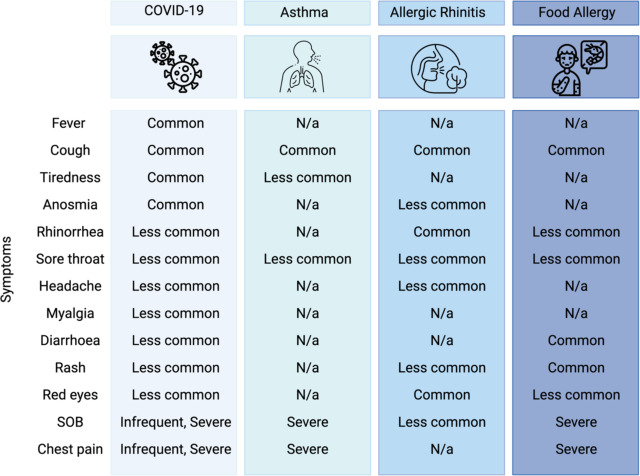Alyssa G. Burrows, BHScH Anne K. Ellis, MD, M.Sc.
Ann Allergy Asthma Immunol. 2021 Dec 28:S1081-1206(21)01310-7. doi: 10.1016/j.anai.2021.12.013. Epub ahead of print. PMID: 34971763.

- With some exceptions, people with asthma are not at a higher risk of more severe disease, hospitalization or death due to Severe acute respiratory syndrome coronavirus-2 (SARS-CoV-2), however, the perceived risk of being at higher risk has significantly impacted the mental wellbeing of people with asthma, disease severity, asthma control, female sex, and previous history of anxiety and/or depression are risk factors. More research is needed, particularly in post-lockdown periods.
- AR patients reported higher anxiety and depression scores than healthy controls. Behaviour changes during the pandemic, such as mask-wearing, spending less time outdoors, more time spent indoors, and decreased air pollution during lockdown periods, have impacted symptom scores.
- COVID-19 mental burden on people with food allergies was exclusively studied in children, adolescents and caregivers. Generally, people with FA reported concerns regarding the activation of emergency services and emergency department visits due to COVID-19, delays in allergy office visits, delays in oral immunotherapy, and difficulties with finding allergy-safe products during grocery shopping.
- Significant burden was experienced by parents and caregivers of children with asthma and food allergy compared to control groups. Referring these patients’ caregivers to appropriate support groups and mental health resources may be salient.
- In general, anaphylactic reactions to vaccinations, including the COVID-19 vaccines, are very rare, but do occur. In the case of a previous allergic reaction to the COVID-19 vaccine, allergists have been influential in determining which patients can proceed with receiving a vaccine according to evolving evidence-based guidelines.
